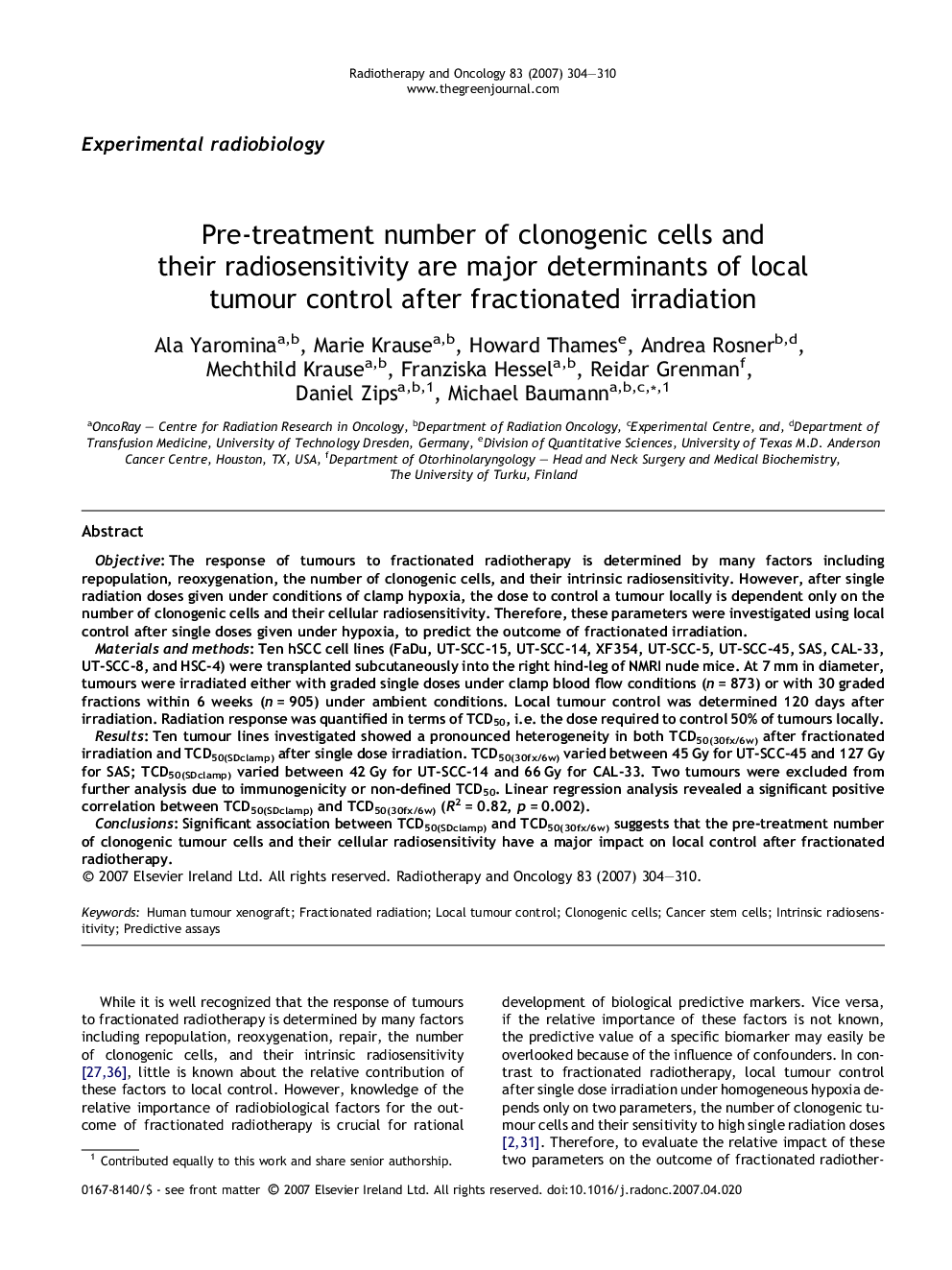| Article ID | Journal | Published Year | Pages | File Type |
|---|---|---|---|---|
| 2160927 | Radiotherapy and Oncology | 2007 | 7 Pages |
ObjectiveThe response of tumours to fractionated radiotherapy is determined by many factors including repopulation, reoxygenation, the number of clonogenic cells, and their intrinsic radiosensitivity. However, after single radiation doses given under conditions of clamp hypoxia, the dose to control a tumour locally is dependent only on the number of clonogenic cells and their cellular radiosensitivity. Therefore, these parameters were investigated using local control after single doses given under hypoxia, to predict the outcome of fractionated irradiation.Materials and methodsTen hSCC cell lines (FaDu, UT-SCC-15, UT-SCC-14, XF354, UT-SCC-5, UT-SCC-45, SAS, CAL-33, UT-SCC-8, and HSC-4) were transplanted subcutaneously into the right hind-leg of NMRI nude mice. At 7 mm in diameter, tumours were irradiated either with graded single doses under clamp blood flow conditions (n = 873) or with 30 graded fractions within 6 weeks (n = 905) under ambient conditions. Local tumour control was determined 120 days after irradiation. Radiation response was quantified in terms of TCD50, i.e. the dose required to control 50% of tumours locally.ResultsTen tumour lines investigated showed a pronounced heterogeneity in both TCD50(30fx/6w) after fractionated irradiation and TCD50(SDclamp) after single dose irradiation. TCD50(30fx/6w) varied between 45 Gy for UT-SCC-45 and 127 Gy for SAS; TCD50(SDclamp) varied between 42 Gy for UT-SCC-14 and 66 Gy for CAL-33. Two tumours were excluded from further analysis due to immunogenicity or non-defined TCD50. Linear regression analysis revealed a significant positive correlation between TCD50(SDclamp) and TCD50(30fx/6w) (R2 = 0.82, p = 0.002).ConclusionsSignificant association between TCD50(SDclamp) and TCD50(30fx/6w) suggests that the pre-treatment number of clonogenic tumour cells and their cellular radiosensitivity have a major impact on local control after fractionated radiotherapy.
